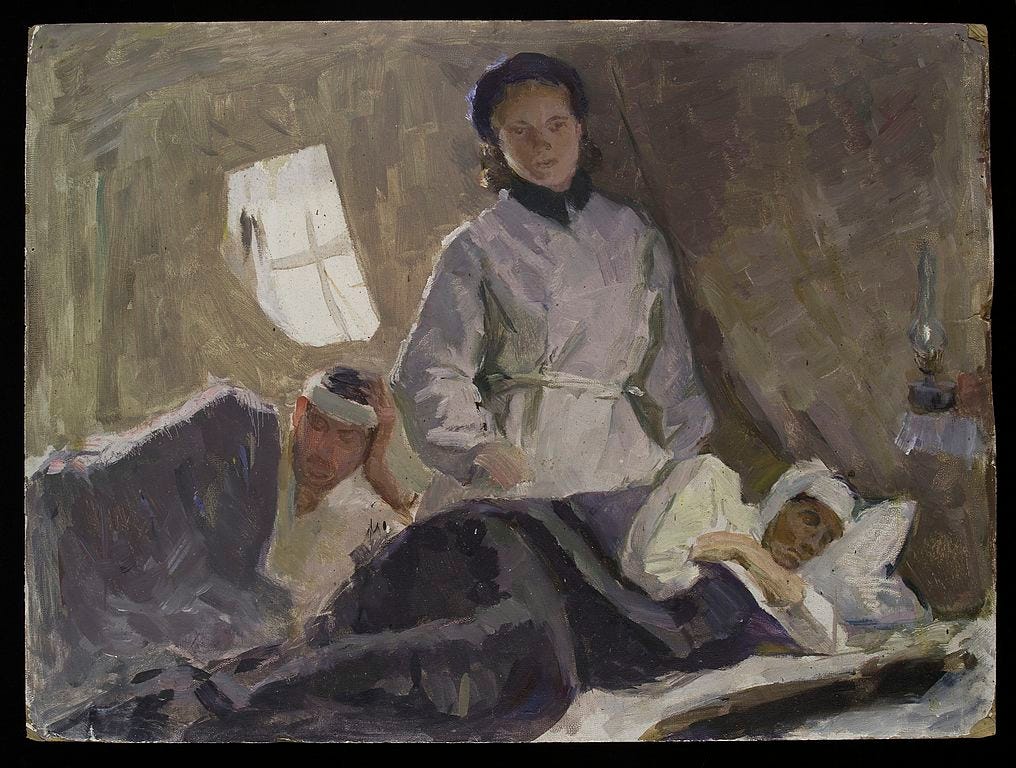Your Stories of Being Excluded from Male-Centered Medicine
The common good and coronavirus
Before Christmas, I opened a conversation on the exclusion of pregnant women (and, sometimes, all women not on the Pill) from medical trials. Next week, I’ll post highlights from your responses to Ross Douthat’s and Sarah Ruhl’s writings on children as an invitation to kenosis (self-emptying).

First off, some good news! Martha points to a new study focused specifically on studying the effects of the coronavirus vaccine in pregnant women.
I’ll be getting the vaccine as soon as I’m eligible, including if I’m still nursing or pregnant again. The risks of covid outweigh the hypothetical risks of the vaccine, but I’m glad these researchers are going to double check and (hopefully) put any fears to rest.
Emily Oster has a round up of what we do know so far.
In less good news, the New York Times has an article on how pulse oximeters are failing Black patients.
The analysis, of 10,789 paired test results from 1,333 white patients and 276 Black patients hospitalized at the University of Michigan earlier this year, found that pulse oximetry overestimated oxygen levels 3.6 percent of the time in white patients, but got it wrong nearly 12 percent of the time, or more than three times more often, in Black patients.
In these patients, the pulse oximeter measures erroneously indicated the oxygen saturation level was between 92 and 96 percent, when it was actually as low as 88 percent (the results were adjusted for age, sex and cardiovascular disease).
Just as medicines not tested on women may not match the dosages women actually need, devices that aren’t tested on Black patients can leave them with the wrong diagnosis. In this case, the wrong blood oxygen reading could lead to a patient not being admitted to the hospital when they’re in need of care.
Leslie reminded us that pregnant womens’ exclusion is as much about caution as bias, and that finding women who are willing to be part of a clinical trial while pregnant presents its own hazards:
Researchers could pay upfront for the risk, but then the few women likely to consent to any sort of risk are those who are in extreme need of money. It becomes exploitive. (Think surrogacy markets.)
Martha (again) agrees that this is a significant hurdle and sees it less as a problem restricted to medicine than as a problem of solidarity:
I'd also say that we don't have a strong enough sense of the common good these days. Good points have been raised in the comments about how pregnant women, especially wealthier/more privileged pregnant women, are less likely to take the risk of being part of a trial. Which means that the potential risks are disproportionately born by the less privileged. The solution to that imo isn't to not do trials, but better messaging rebuilding our trust in medical institutions and creating that feeling of a social obligation to participate for the greater good. We need to get to a point of celebrating participation instead of chastising women for risking their future children.
I should mention that 1DaySooner has been building a registry of volunteers for coronavirus vaccine human challenge trials with precisely this idea of being willing to take risks for others.
A number of you shared personal stories about having your own health crises dismissed by doctors. Others talked about how, even when you received a diagnosis, it came with the disappointing news that your condition had never attracted serious research, and there were no meaningful treatments available.
Lorrie summed up these stories well with this:
There is a problem with pathologizing the normal in women's health but also a problem with normalizing the pathological, especially when it comes to pain.
I’m glad some of you made connections in the comments—as I lost children through miscarriage, it meant so much to speak to other bereaved moms and hear them agree that the way my children and I were treated was abominable. I hope by finding people who will say, “You, too?” we can eventually say, “No more.”

